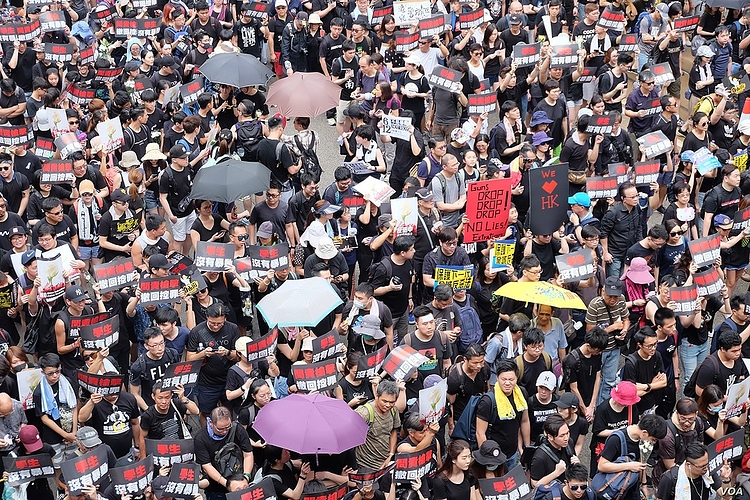At the n+1 website, Elvia Wilk gives a fascinating account of the six weeks she recently spent in Hong Kong amidst the pro-independence protests that have been raging there since the summer. The Hong Kong government shows no signs of conceding to the protests’ demands, who themselves show no sign of relenting – prompting many to wonder when and how the demonstrations might end. But as Wilk writes, the Hong Kong protests remind us that the temporarily of revolution is always indeterminate and open-ended. Here’s an excerpt from the piece:
My aversion to end-speak is not an aversion to sensationalism or alarmism—by all accounts this is a sensational moment! Ring the alarm! Nor am I making a plea for some kind of general optimism. There is not much reason to be optimistic. The most easily foreseeable negative outcomes are indeed the most likely ones: further encroachment of martial law, the arrival of the PLA, an official curfew, longer detention terms for the arrested, more injuries and deaths. And yet I wonder whether it’s possible for a writer in my position to acknowledge these likelihoods without describing them as inevitable, and without relying on the narrative crutch of apocalypse.
Impending apocalypse is titillating, at least from the outside. It’s the easiest story for people like me to tell. But the dogged and determined activity of the protesters—not in spite of but irrespective of the likely outcomes—demands that witnesses challenge ourselves to imagine a different way to tell the story, both now and later. A story with a different arc than “they put up a good fight but it’s doomed.” A story that gives important events their due but does not describe any moment as the turning point after which all will be lost. No news hook can explain this daily insurrection—its constancy and its lack of heroes and martyrs are the reasons it’s remarkable—and admittedly, it’s hard to tell a story about a leaderless, decentralized revolution. But the ability to stick with indeterminacy is exactly what revolution, and the revolutionary imaginary, requires.
Image by VOA. Public Domain.
